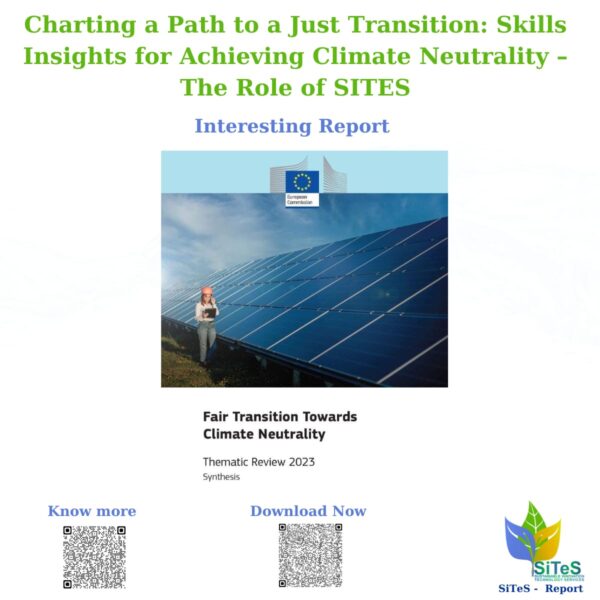
This report provides an extensive examination of the ongoing green transition’s impact on the European economy, both historically and with a forward-looking perspective. It highlights the strategies adopted by most Member States to address the employment and social challenges brought about by this transition, with a particular focus on reskilling and upskilling initiatives, often tailored to support vulnerable populations.
One of the key findings of the report centers on the employment prospects in “green jobs.” The research indicates that investments in decarbonization and the reduction of fossil fuels are expected to yield positive employment outcomes across most Member States. Aligning with the climate objectives of the European Green Deal could potentially generate an additional 884,000 jobs in the EU by 2030. However, the realization of this potential is contingent upon the implementation of appropriate accompanying policies, while also considering regional disparities.
Furthermore, ongoing research across various Member States seeks to assess the specific skill sets required for these “green jobs.” The report underscores the diversity in skills profiles across sectors and occupations within the green economy. For example, in France, a significant proportion of employees in the sanitation and waste treatment sector lack a baccalaureate degree, in contrast to the workforce’s average. Conversely, roles linked to nature conservation and environmental protection exhibit above-average educational attainment, with a notable percentage holding three-year tertiary degrees or higher qualifications.
SITES plays a vital role in these developments, actively engaging in projects related to the skills agenda, including initiatives such as E4 and C TOUR, to contribute to the advancement of the European Green Transition and ensure a skilled workforce aligns with the goals of the European Green Deal.